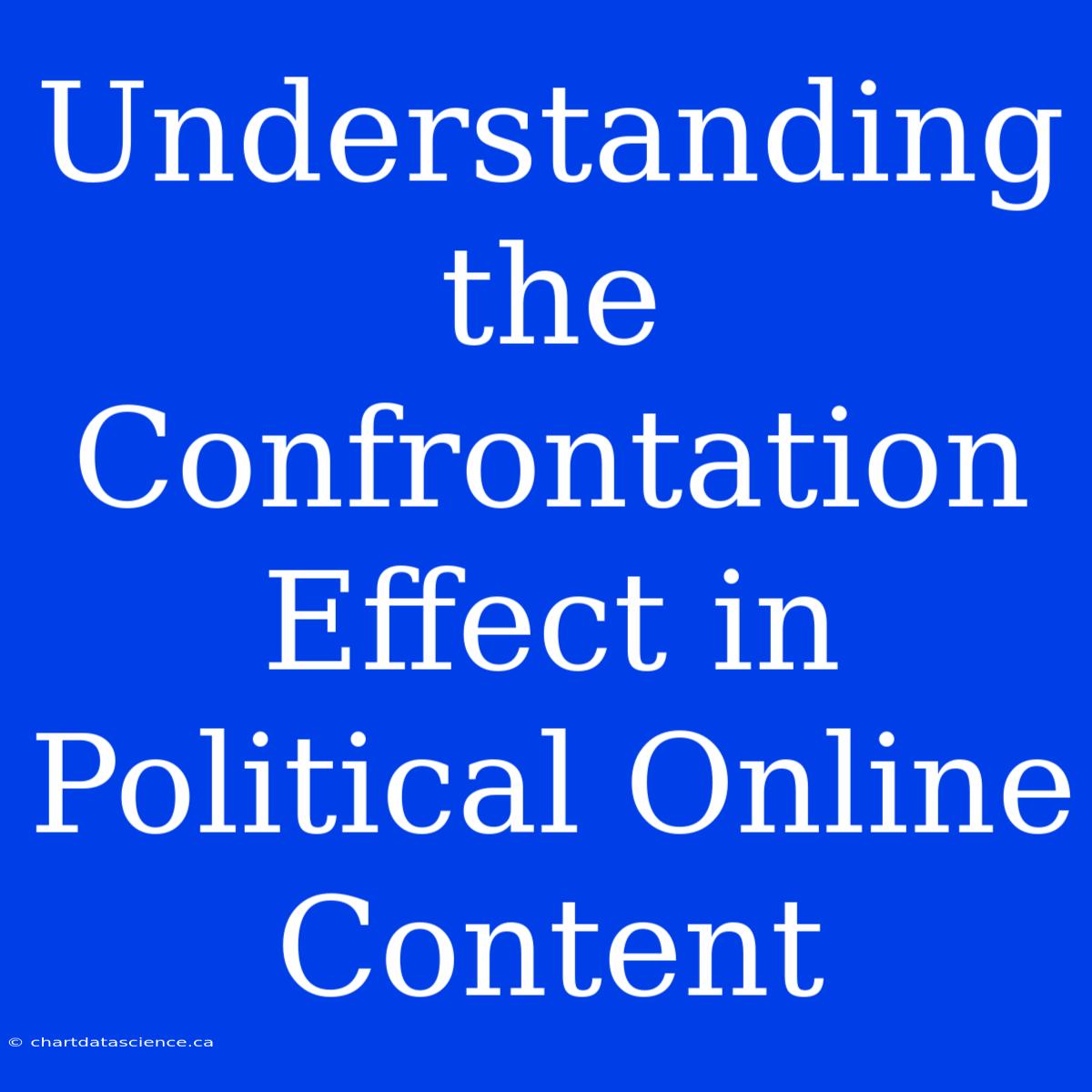Understanding the Confrontation Effect in Political Online Content
The internet has become a battleground for political discourse, with social media platforms becoming echo chambers for both sides of the political spectrum. This phenomenon has created a unique challenge for understanding how people process and engage with political information online. One particularly interesting aspect is the confrontation effect, which refers to the tendency for people to become more strongly attached to their political beliefs when exposed to opposing viewpoints.
This effect can be seen in the way people react to political content online. If someone is exposed to opposing viewpoints on Facebook or Twitter, they might be more likely to double down on their own beliefs instead of engaging in thoughtful discussion. This is particularly true if the content is presented in a way that is perceived as aggressive or hostile.
So, how does the confrontation effect manifest in political online content?
Let's break it down:
1. Echo Chambers and Confirmation Bias
The internet is rife with echo chambers, where people are only exposed to information that confirms their existing beliefs. This phenomenon, known as confirmation bias, leads to a lack of exposure to diverse perspectives and reinforces pre-existing biases.
Imagine a person who heavily leans towards a particular political party. They might only follow news sources and social media accounts that align with their political ideology. This creates a bubble where they're only exposed to information that reinforces their existing beliefs, leading to a stronger attachment to them.
2. Emotional Responses and the Backfire Effect
Political content online can evoke strong emotions, often leading to a backfire effect where people become even more entrenched in their beliefs when presented with opposing viewpoints. This effect is especially pronounced when the content is presented in a hostile or inflammatory way.
Think about a political debate on a social media platform. One commenter might post a strongly worded argument that challenges the other side's stance. This can trigger a cascade of emotional reactions, leading to heated exchanges and further polarization.
3. Group Identity and Social Validation
Social media platforms encourage a sense of belonging to specific groups based on shared political beliefs. This sense of group identity strengthens individuals' attachment to their political stances, as they feel validated by their peers and encouraged to stay within the group.
Consider a political activist using social media to connect with like-minded individuals. They might join groups or follow accounts that reinforce their beliefs, leading to a feeling of validation and strengthening their sense of belonging to a political community.
The Implications of the Confrontation Effect
Understanding the confrontation effect is crucial for navigating the complex landscape of political online content. It highlights the challenges of promoting constructive dialogue and critical thinking in a digital environment.
Here are some key implications:
- Reduced exposure to diverse viewpoints: The confrontation effect can lead to a lack of exposure to opposing perspectives, hindering the development of a nuanced understanding of complex political issues.
- Increased polarization: The effect can contribute to the polarization of political discourse, making it difficult to bridge divides and find common ground.
- Limited potential for reasoned discussion: It can make it challenging to engage in meaningful and respectful conversations about political issues online.
Moving Forward
So, how can we combat the confrontation effect and foster more constructive online political engagement?
- Promote media literacy: Educating individuals about the potential for bias and manipulation in online content can help them critically evaluate information.
- Encourage diverse perspectives: Platforms can use algorithms to surface a wider range of viewpoints, promoting exposure to different perspectives.
- Promote respectful dialogue: Platforms can implement measures to encourage respectful and constructive conversations, discouraging hostility and aggression.
The confrontation effect is a significant challenge in navigating the digital landscape of political discourse. By understanding its mechanisms and implications, we can take steps to promote a more nuanced and respectful online conversation about political issues.

